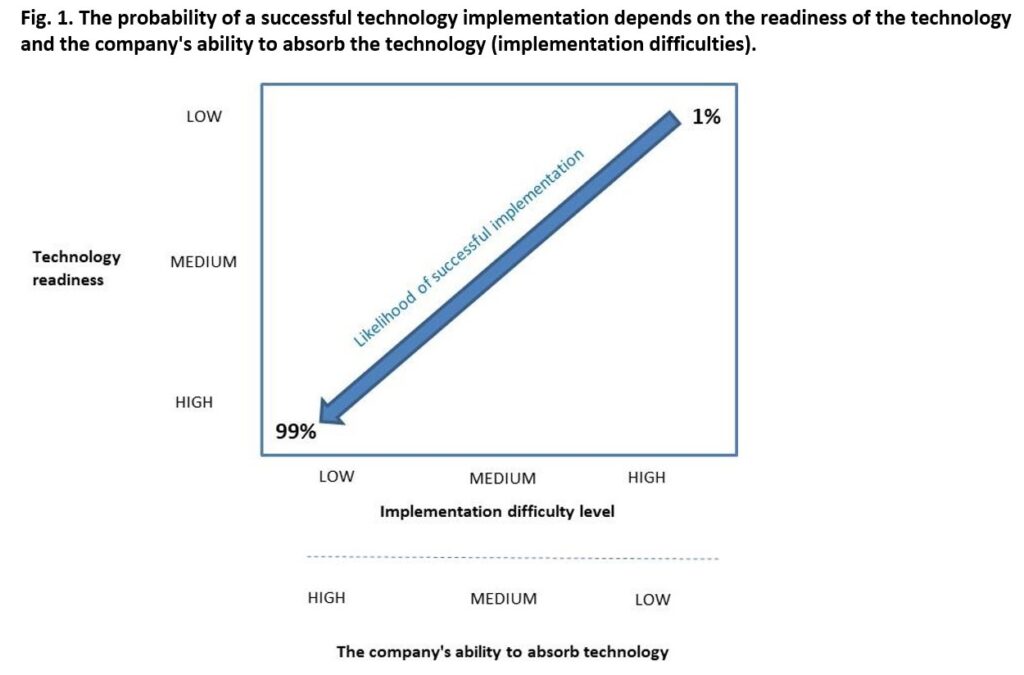Programmer, this article is for you! Grab a handful of useful information about design patterns.
Each of the technologies, as we showed in the article [Trajectories of technological development], is at a certain stage of its development. When considering the transfer of a given technology (including IT) to the company, we should take into account its readiness and the company’s ability to absorb it, i.e. implement it.
A company’s ability to absorb technology is its ability to adapt available technologies in order to increase the company’s competitiveness and productivity. In other words, a company’s absorptive capacity is a set of organizational practices and processes through which a company acquires and assimilates (potential ability), and transforms and uses (consumed ability) knowledge to create changes in the company’s production environment in order to gain a competitive advantage.
For the purposes of this article, it can be assumed that the company’s ability to absorb a technology is the opposite of the level of difficulty in implementing a given technology, i.e. the greater the company’s skills and competences in implementing a given technology, the less difficult the implementation may be. In this context, each company planning a technology transfer should consider the extent to which a given implementation may affect its production environment. From the company’s point of view, it may be useful to consider the level of difficulty of implementing a given technology in the company, which is presented in Table 1.

When analysing the relationship between the readiness of a technology and the difficulty of its implementation in a company (the company’s ability to absorb a given technology), one can notice a natural dependence consisting in the fact that the more mature (more popular) technology is, the more capable the company is to absorb it (the more easier to implement) – see Fig. 1.

It is worth noting from INNOKREA’s practice that our implementations are characterized by the use of modern IT technologies and well-established methodologies. We support our clients in the absorption of IT technologies through effective project management practices with the purpose of ensuring such implementations are performed successfully.



